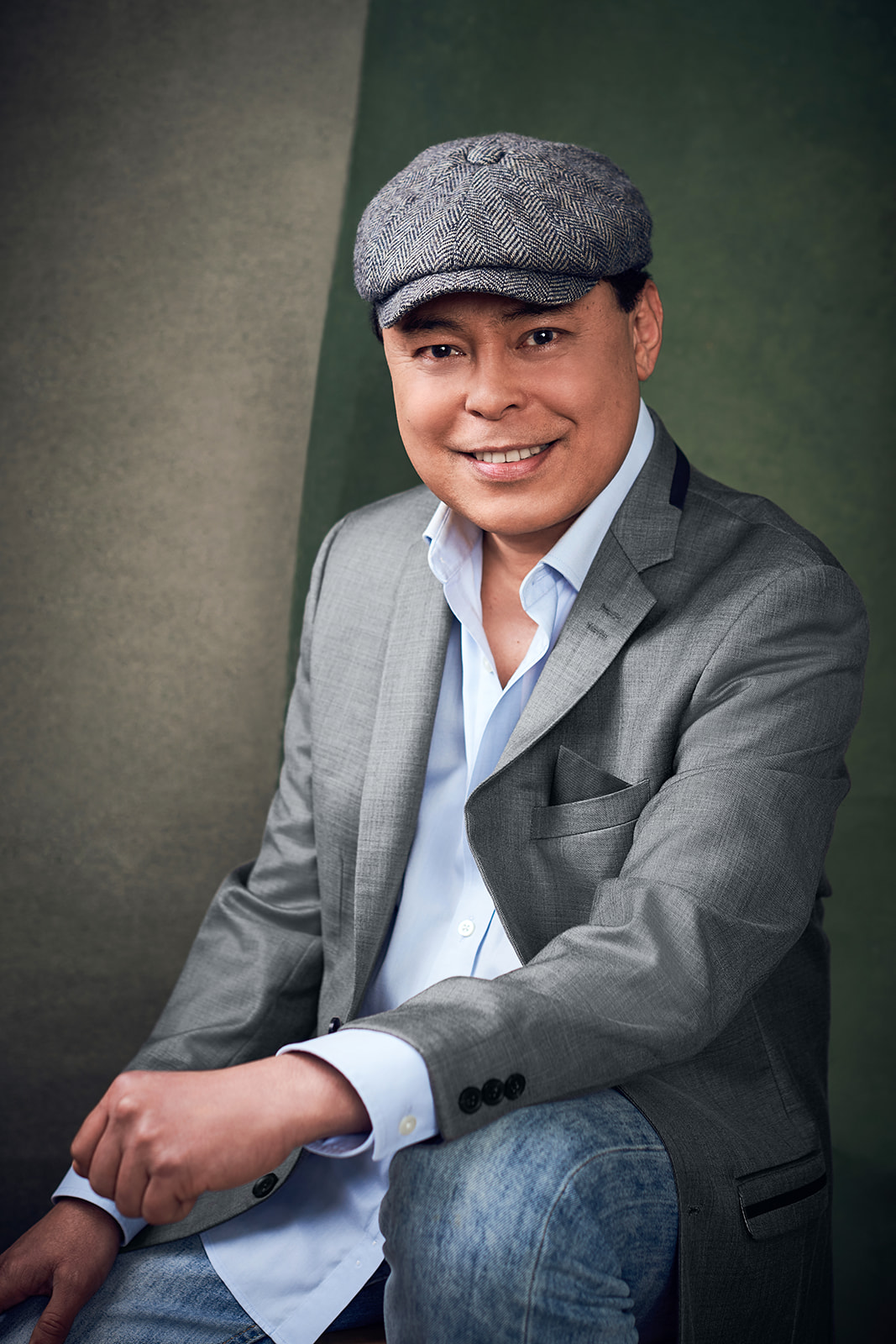By Henrylito D. Tacio
Photos courtesy of Jojo Dela Cerna
The name Jojo Dela Cerna (real name: Jovy Adlawan) may not ring a bell among Filipinos. But in London’s West End, he is a familiar moniker. He has played Thuy in the award-winning Miss Saigon for four years at Drury Lane Theatre Royal. Prior to that, he performed the same role in The Music of Schonberg/Boublil concert in Manila.
His West End major cabaret acts include “I’ll Be Here with You”; solo debut showcase, “Truly Grateful”; his album launching, “Music & Me”; and “We Can Be Kind” album. His recent West End cabaret acts venues include The Mountbatten Hotel Lounge and at the Jermyn Street Theatre.
Dela Cerna is part of The King and I original cast recording at the West End and the United Kingdom tour where he played the tragic lover Lun-tha. He played Emperor Abe on Stephen Sondheim’s Pacific Overtures, which was staged in Leicester Haymarket Theatre. Another notable emperor role was in the Christmas pantomime called Aladdin (in Wimbledon Theatre and Orchard Theatre). “
Before his United Kingdom stint, he has performed as a lounge singer and toured in road shows of major cities in the country as well as various Manila-based theatre productions. He also appeared in one of the plays staged at the Cultural Center of the Philippines (CCP).
Actually, he started his career in several singing competitions including the First Zamboanga City Music Festival. He emerged as champion in Belter of the Year in National Panasonic’s Quest for the Best (1993). He also represented the Philippines in the Third International Laser Competition in Bangkok, Thailand where he emerged the winner.
He graduated high school from Holy Cross College of Bansalan and then earned his Bachelor of Arts in Communication from Ateneo de Davao University in 1991.
Dela Cerna and I had two things in common. Aside from growing up in Bansalan, Davao del Sur, we were also honored as Outstanding Bansaleño in 2020; he was cited for performing arts while I was given the citation for journalism.
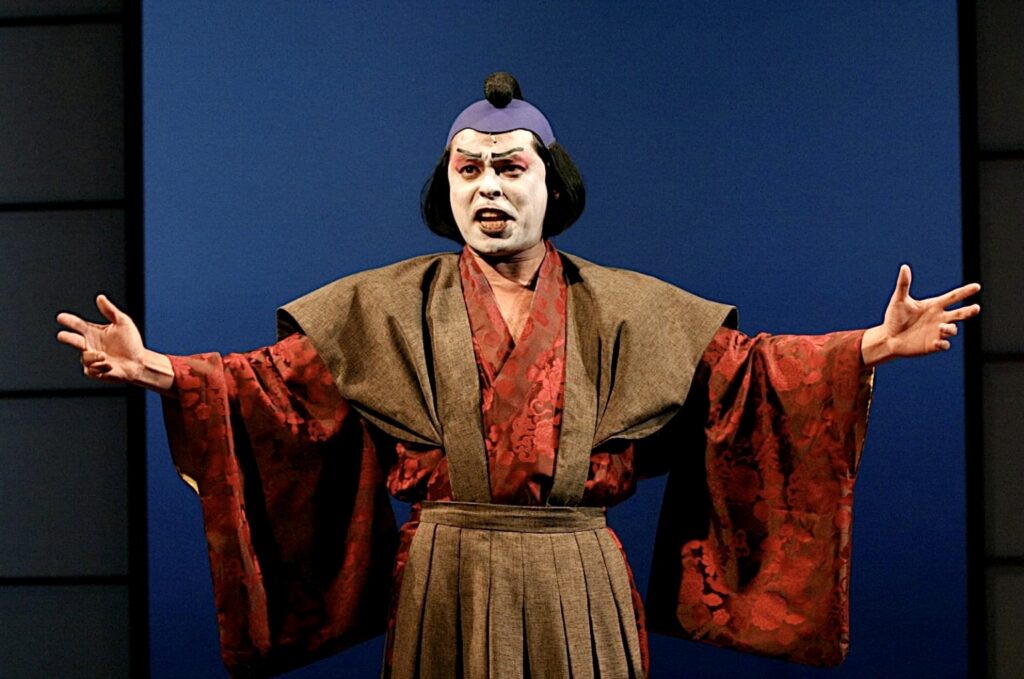
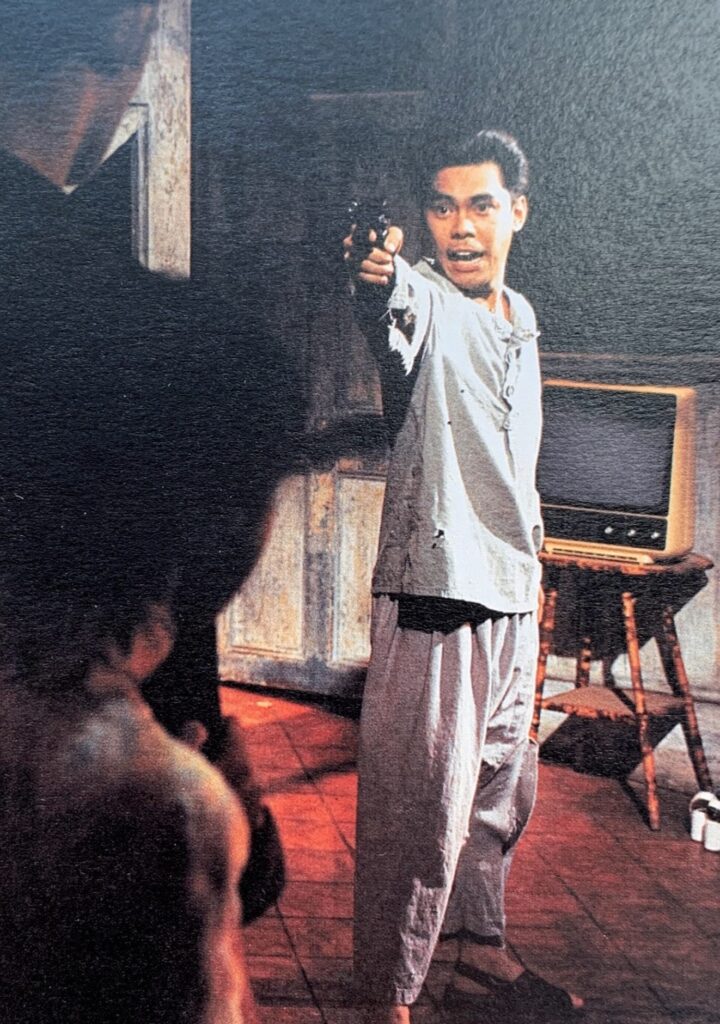
Recently, I have had the privilege of talking with him. He answered my questions in a straightforward manner and without much fanfare: direct, precise, and deductive. He recalls the past events as if they were just yesterday.
“I remember participating in singing competitions most of the time, being invited to sing on so many occasions including political rallies I did not even understand why I was there at a young age,” he recalls. “I had graced numerous weddings to sing love songs in the church, and even funerals just before the coffin gets sealed in the tomb while singing a very sad song by special request. I was mostly active at school programs representing the school or Bansalan itself whenever I entered competitions in regional levels.”
He got interested in singing when he was between five or six years old. “I started entertaining my family between those ages. Both sides of my family always requested me to sing during family occasions, and my grandparents always ended up in tears of awe and adulation, perhaps I carried on singing that way – with feelings as always.”
It was his eldest sister who trained him at home. She regimented vocalization, especially in the morning in a neck deep drum of water for lung power. “But my whole family was the backbone of singing inspiration and support,” he says. “My family hired some guitarists to train my singing along with a guitar for rhythm and breathing techniques. It was a family effort, especially my mother’s. They boosted my confidence and helped me maintain composure on stage.
“I also had the initiative to run around Bansalan in the morning to improve stamina as part of preparation whenever an upcoming contest was about to happen knowing everything was at stake, and hoping to win,” he adds.
In those days, his favorite singing idols were those from the 1970s. “I listened to Victor Wood, and Eddie Peregrina or Susan Fuentes,” he admits. “But in the 1980’s, I started evolving my singing style listening to Basil and Leo Valdez, Anthony Castelo, Rey Valera, Dulce, Ivy Violan, Imelda Papin, Eva Eugenio, to name a few, when Jukebox was very popular in those days.”
He avoided following foreign artists due to bad English diction he had then, which could end up in laughter or criticism should he get it wrong during the competition.
Persistence is the key to his success. “My singing journey started from joining contests around the province, and to the big cities, up to Manila then representing the Philippines in Thailand eventually,” he recalls. “Win or lose was a constant challenge in every singing contest that I have been to; it was the root of my training ground and I have so much to thank for it. I remember our living room filled with so many trophies, banners, medals and cheap plastic giveaways as part of the winning package on top of the money prize.”
Dela Cerna remembers his time when he was living in Davao City. “College days became a very serious deal with my singing as it became the bread and butter while singing in Davao City’s karaoke bars, and hotel lounges as well as ad hoc events where I got paid to sing,” he says.
He also joined the Ateneo Glee Club. “It was my first experience of singing in harmony in a chorus instead of solo singing in freestyle that I always was,” he says. “The Glee Club during my time was a solid singing group and I was proud to be part of it.”
There was a time when he was absent in class for days without telling anybody where he was going. “When I went back to school I was late for a period but I managed to sneak into the classroom,” he recalls. “I was very surprised that everyone started clapping, including the teacher. I found out that some of them saw me on television while I was in Manila for the grand finals. Luckily, I won that competition; I felt I was forgiven, otherwise it would have been a different story if I didn’t or perhaps second best.”
His Manila stint was a little bit different. “Metro Manila was the hub of all bigger singing competitions, bigger events and much bigger prizes including Bagong Kampeon, with children and adult categories on television,” he says. “During my time it was almost like a religion to be joining a singing contest; you have a list of barangays to register your entry from one area to another. Win or lose you have to enter the contest, a gamble like a sweepstakes and who knows you might get discovered somewhere along the way or being signed up.”
There was an interesting story on how he ended up in a CCP play. Along the way, he encountered some aspiring singers who eventually became his friends; some of them already had some experience working in theatre Tagalog musicals.
“I only went with them out of curiosity then encouraged me to try and audition later on,” he recalls. “I was reluctant and extremely worried at first because of my Visayan accent and I thought they would just laugh at me because my Tagalog was also not very good, let alone the hard accent.”
During his first audition at CCP, he was in awe. He met some people whom he only saw on television or magazines. “I was distracted until I got to work with them when I was luckily accepted in El Filibusterismo in CCP’s Tanghalang Pilipino, paving the way to join a tour in key cities of Japan,” he recalls. “It was my first ever professional theatre experience which I learned so much from – a precursor to a much bigger theatre experience ahead of me.”
Dela Cerna left Bansalan in 1987 and stayed in Davao City until 1991. Then, he went to Manila to try his luck. “Winning in the first Zamboanga Music Festival was a big push to seriously try out what the music business was about by heading to Metro Manila with not much in my pocket to survive, which was quite a common story of struggle but pretty much part of everyone’s journey when you go to Manila to find your destiny as many people said,” he says.
In 1995, he joined the queue of countless hopefuls for Miss Saigon casting. “I got recalled consistently but never got lucky to be in the finals to be sent over to the next destination either to Germany or Australia,” he says now, “it was extremely frustrating. I thought it was because of my accent, or not being good enough.”
He said he only applied for the ensemble part at first. “I found out the choreography combination was too difficult at that time; but when I got to sing, I was continuously moved forward to the next lot of recalled hopefuls.”
He was applying for the role of Thuy, the villain of the show who was shot by Kim – the play’s lead character. “I was auditioning for (the part) predominantly because of my age; at that time, I was matched to be Kim’s cousin for the casting. The part also suited my vocal range, singing high notes on the stage while harassing Kim with the knife protecting her son Tam.”
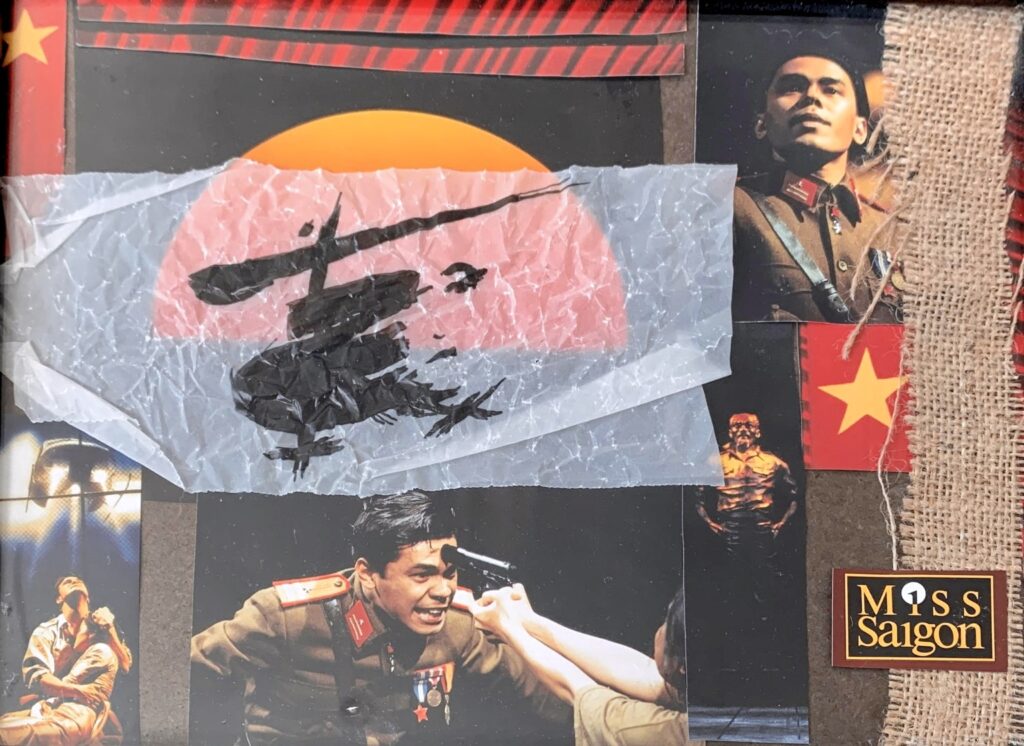
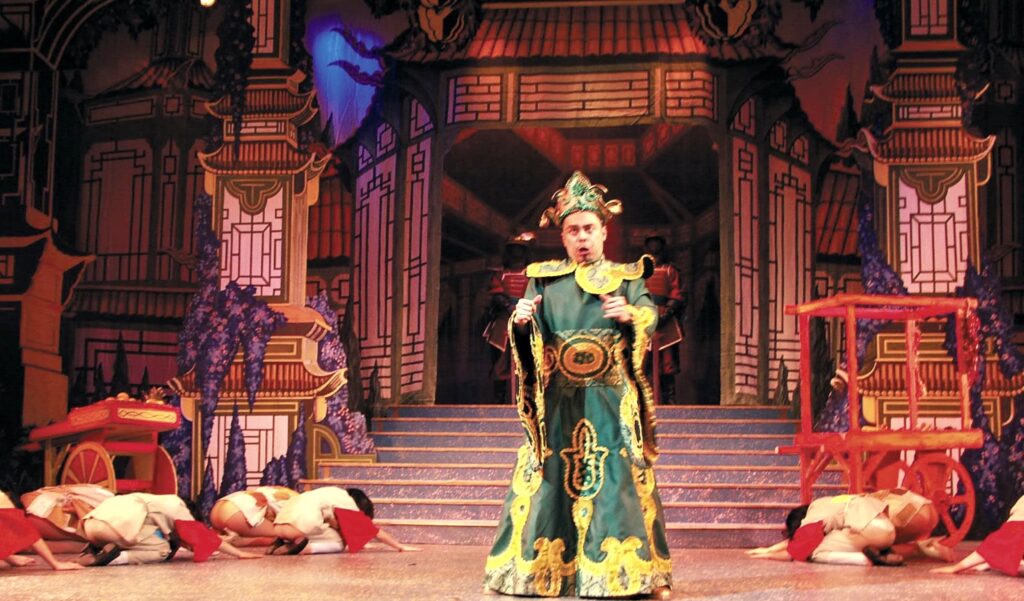
Thuy’s casting notes read: “Strong willed, aggressive, and militaristic. Intensely patriotic and anti-American. Strong vocal and dramatic ability required.”
The description fitted Dela Cerna perfectly.
“I was offered the contract to perform Thuy in London’s West End while in Manila, and by the end of the week my batch were on the flight to London,” he recalled. “(There was) no time for goodbyes with my family in Davao – that’s how urgent the new cast was needed in London at that time.”
The rest was history.
When asked how he defines success, he replies, “Success is quite subjective for me, whenever you feel that sense of fulfillment of achievement, that feeling of contentment follows through – not entirely defined but felt.”
His final words: “I had personal questions about purpose and I often forget the reason and the singing gift that I have that brought me here (in UK) and changed my life for good. I wanted to be an inspiration to my younger family members, and to remember that I used my singing talent to help others – that in itself counts as a purpose, I guess.”

